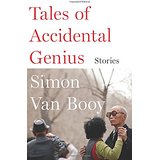There are few things more advantageous or more enjoyable
than a good book. When faced with the infinite selection of books available,
and the very finite time we all have to read, how you choose what to read is
very important. My favorite way to choose a good book is based upon someone else’s
recommendation. I have benefited from many book suggestions over the years,
and in an effort to pay it forward, I have decided to offer up some suggestions
myself. I hope you enjoy these books as much as I have! Also, if you have any
recommendations of your own, I would love to hear them! Here are five great
books to check out this summer:
Smarter Faster
Better: The Secrets of Being Productive in Life and Business by Charles
Duhigg
After hearing Duhigg speak at a conference a couple of years
ago, I picked up his first book, The Power of Habit. I really enjoyed it, and
was therefore excited to check out his latest offering. Smarter Faster Better is
packed full of anecdotal stories to help the reader grasp the ins and outs of creativity and productivity. The style of writing is reminiscent of Malcolm Gladwell, and keeps the reader engaged. Also, at the end of the book Duhigg includes a great section that
helps with practical application going forward.
A Camaraderie of
Confidence by John Piper
I’ve loved many of John Piper’s books over the years. They
are deep and packed with great theology. My favorite of his works are a series of
books that are less dense and much easier to read. His series entitled, The
Swans Are Not Silent, is a collection of biographies of Christians from various
times in history. They have included people like John Bunyan, William
Wilberforce, Martin Luther, Augustine, and C.S. Lewis. The newest book in the collection
contains biographies of Charles Spurgeon, George Muller, and missionary Hudson
Taylor. These books are amazing devotional reading. They have each inspired me
greatly, and I believe they will be encouraging to you as well.
Living Forward: A
Proven Plan To Stop Drifting and Get the Life You Want by Michael Hyatt and
Daniel Harkavy
I really enjoy Michael Hyatt’s podcast and his recently
released book has been incredibly beneficial as well. It’s a brief book, but it’s
packed with great insight and practical tools that will help you live a more
deliberate and significant life. By gaining clarity on your relationships, goals, and dreams,
you will be able to more easily seek the life you want, and impact the people you
care about most.
Tales of Accidental
Genius: Stories by Simon Van Booy
Few writers today possess the gift for words that Simon Van
Booy possesses. In this collection of short stories, you will find joy,
heartbreak, and renewed hope. If you are not used to the short story format, it
might take a bit of getting used to. The prose is beautiful and the stories are
touching. I have yet to read a book by Van Booy that I have not loved.
I hope you enjoy these books, and don’t forget to leave any
suggestions about great books that you are reading!






















